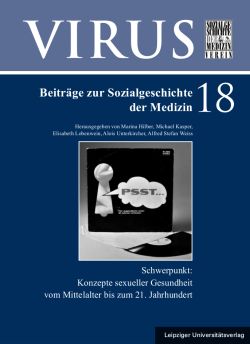
VIRUS Band 18, pp. 033-060, 2020/07/09
Konzepte sexueller Gesundheit vom Mittelalter bis zum 21. Jahrhundert

Medieval sexuality was restricted by the Catholic Church’s norms, which allowed a legally married couple to have intercourse only in order to procreate and only during a few weeks of the year. Even this legal sex was considered by many theologians to be sinful. Notwithstanding the above, the medical texts of the epoch, based mostly on antique surgery (transmitted in part via Arabic writers) quite often treated questions of healthy sex according to the teachings of humoral pathology. An important source was the tract De coitu written by Constantinus Africanus in the 11th century. From this standpoint, an insufficient number of orgasms could lead to diverse ailments such as amor heros (depression caused by unsatisfied libido). The medical quality of sex also became a theme for satirical poets writing in the vernacular languages at the end of the Middle Ages.
Keywords: Healthy Sex, Coitus, Orgasm, Medical Writings, Satirists, Humoral Pathology, Constantinus Africanus, Religious Repression